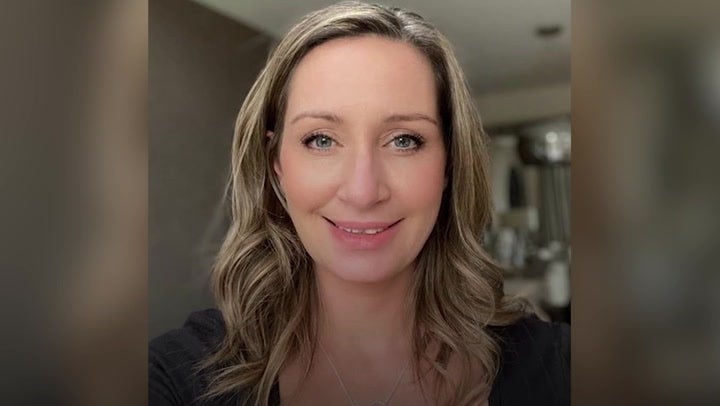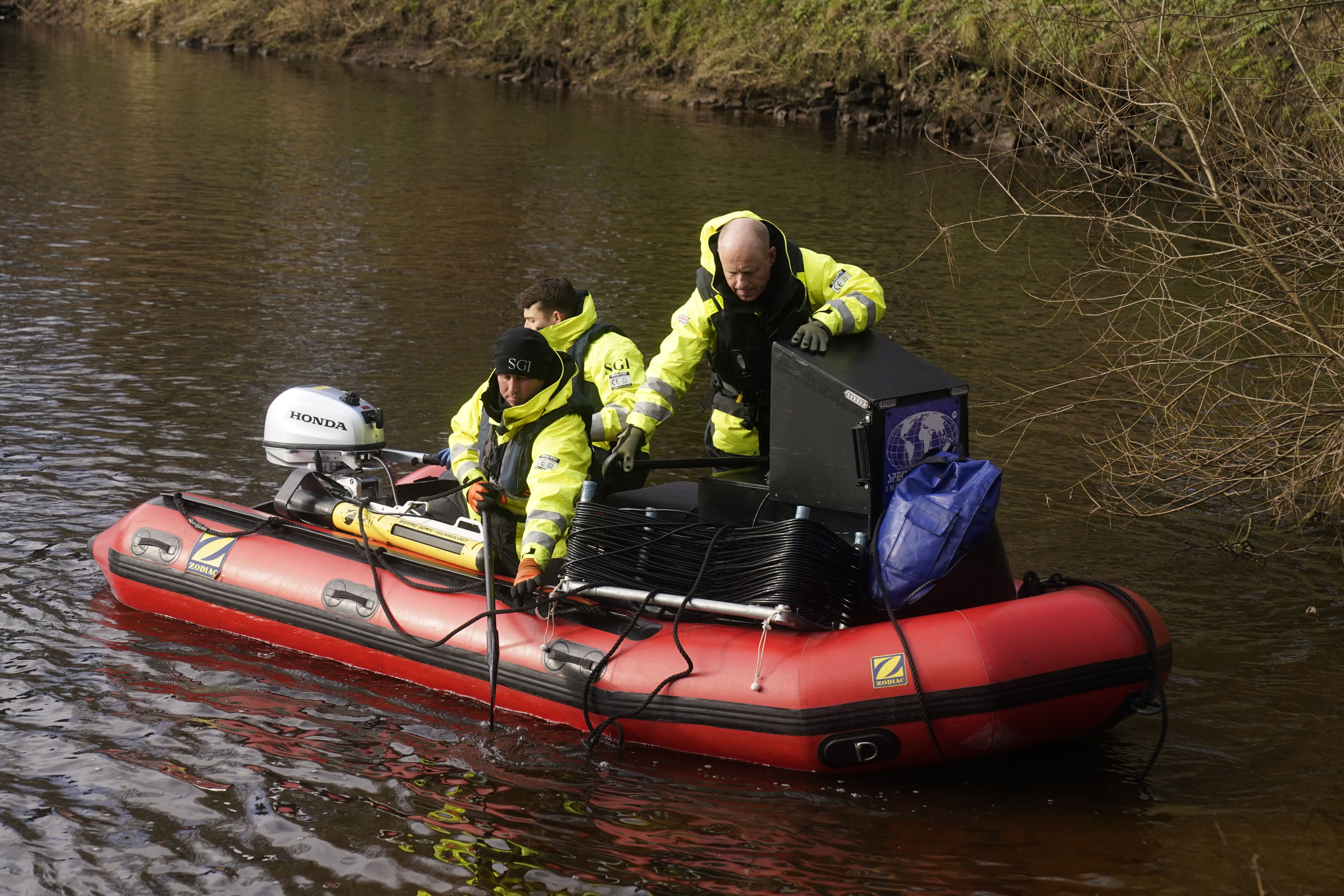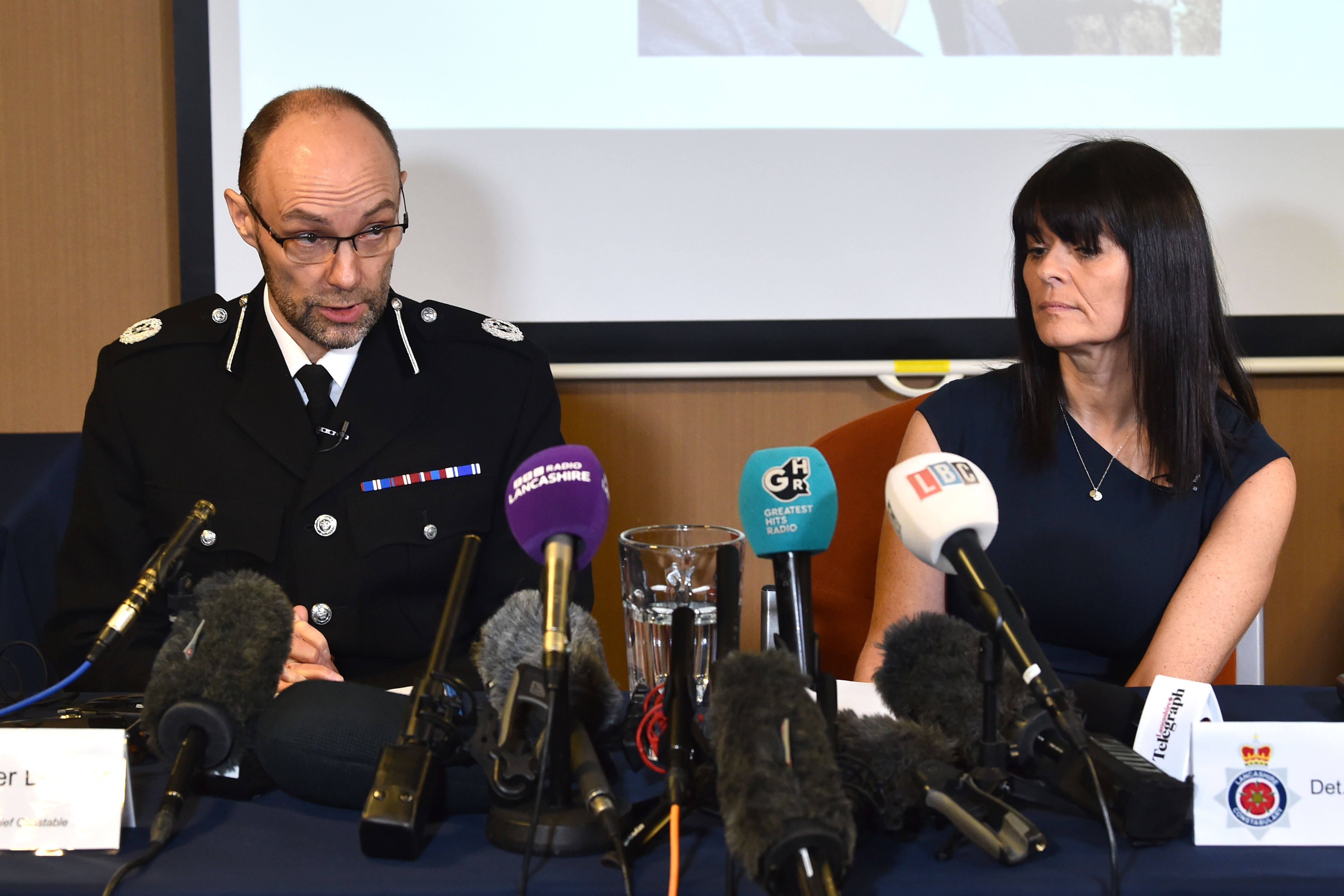When did Nicola Bulley go missing? Timeline of the mystery as inquest begins
Lancashire Police have been criticised for disclosing details of menopause and alcohol struggles
The inquest into the death of mother-of-two Nicola Bulley is underway, beginning on Monday (26 June).
The 45-year-old vanished after dropping her daughters at school and then walking her dog along the River Wyre in St Michael’s on Wyre, Lancashire, on 27 January.
Ms Bulley’s phone was found, apparently still connected to a Microsoft Teams work call, on a park bench nearby, along with the harness and lead for her dog, Willow, a springer spaniel.
Ms Bulley, a mortgage adviser originally from near Chelmsford but living in Inskip, was immediately deemed a “high risk” missing person, sparking a huge police search operation. Hundreds of local search volunteers got involved amid intense media and public interest.
Her body was found in the river around a mile farther downstream from the bench on February 19

The search capured the public interest but the police were criticised for releasing information about Ms Bulley’s struggles with alcohol and perimenopause.
There were also problems with hobby detectives and members of the public entering the area to carry out their own DIY probes.
Here is how the events played out.
Timeline of Nicola Bulley case
10 January
A response car staffed by both police and health professionals attended a report of concern for welfare at Ms Bulley’s home address. No one was arrested in relation to the incident, which the force said was “a result of her alcohol issues” but it is being investigated.
Police did not reveal the incident until 15 February, some three weeks after Ms Bulley disappeared.
27 January - Day of disappearance
8.43am – Nicola walked along the path by the River Wyre, having dropped her children off at school
8:50am (approximately) - A dog-walker – somebody who knows Nicola – saw her walking around the lower field with her dog. Their two dogs interacted briefly before the witness left the field via the river path
8.53am – She sent an email to her boss
9.01am – She logged into a Teams call
9.10am (approximately) – A witness – somebody who knows Nicola – saw her on the upper field walking Willow. This has been corroborated by police.
9.20am (approximately) – Her mobile phone is linked to the area of a bench by the river
9.30am – The Teams call ended but Nicola stayed logged on
9.33am – A local dog walker finds Willow running around off her lead
9.35am (approximately) – Nicola’s mobile phone, facing upwards, and Willow were found at the bench by another dog-walker. Willow’s harness and lead were halfway between the bench and the river.
10.50am – Nicola’s family and the schools attended by her children were notified of her disappearance
11am – Nicola was reported missing to police

28 January
Police deployed fleets of drones, helicopters, and search dogs as it launched a major missing persons operation.
Lancashire Fire and Rescue also joined the hunt, accompanied by the Bowland Pennine mountain rescue team and the North West underwater search team.
29 January
Local residents gather in the village hall and devise their own search.
30 January
Superintendent Sally Riley from said police were “keeping a really open mind about what could have happened.” She said the force was not treating Ms Bulley’s disappearance as suspicious.

1 February
Ms Bulley’s parents, Ernest and Dot, gave an interview to Sky News in which they describe the “horror” they might never see their daughter again.
“This has just emptied our lives at the minute, we just feel so empty,” Mr Bulley told the broadcaster.
2 February
Lancashire Constabulary spoke with a second witness. The witness told police they did not have any additional information which could aid the search.
North West Police Underwater and Marine support unit also launched a search near where Ms Bulley’s mobile phone was recovered.
Police divers were also scouring the River Wyre while Ms Bulley’s family issued a public appeal for information and support.
3 February
The force announced it was working on the hypothesis that Ms Bulley fell into the River Wyre.
4 February
Lancashire Constabulary calls for a “key witness”, spotted pushing a pram near to where Ms Bulley disappeared, to come forward.

5 February
The woman described as “key witness” came forward.
Police said she was “very much being treated as a witness” and warned against speculation and abuse on social media.”
6 February
Underwater search experts arrived to assist police in the search for Ms Bulley.
In a statement issued that same day, Ms Bulley’s partner Paul Ansell said: “It’s been 10 days now since Nicola went missing and I have two little girls who miss their mummy desperately and who need her back.”
7 February
Police dismiss suggestions of a criminal aspect in Ms Bulley’s disappearance.
Elsewhere, underwater search expert Peter Faulding said he did not think Ms Bulley was in the water.

8 February
Mr Ansell described the “perpetual hell” he was experiencing of not knowing what happened to Ms Bulley.
Police search shifted from the river near to where she vanished “further downstream” and out towards the sea.
Police search teams were spotted where the River Wyre empties into the Irish Sea at Morecambe Bay near Knott End.
9 February
A dispersal order is issued by police to break up groups of amateur sleuths reportedly filming in the surrounding village where Ms Bulley disappeared.
10 February
Mr Ansell told of the “unprecedented hell” his family was experiencing but insisted they still had not given up hope of finding her.
A friend of Ms Bulley’s, Emma White, said the investigation had been “like torture”

12 February
Yellow ribbons emblazoned with handwritten messages were left by friends and family, and attached to a bridge close to where Ms Bulley was last seen.
13 February
Wyre Council removed councillors’ contact information from its website, citing “inappropriate emails and phone calls” regarding Ms Bulley’s disappearance.
14 February
Two people are arrested on suspicion of sending malicious communications over the disappearance of Ms Bulley.
Lancashire Police said it received reports over the weekend of messages being sent to Wyre Council members.

15 February
Police hold a press conference, providing updates on what they have done in the last 19 days.
During the conference, police say Ms Bulley’s case was graded as “high-risk” due to “individual vulnerabilities”, without elaborating.
In a later statement, given to clarify this assertion, police revealed Ms Bulley suffered with “some significant issues with alcohol” in the past which had resurfaced over recent months.
Sharing the personal information leads to a backlash, with MPs among those questioning how it helps the investigation.
16 February
After Lancashire Police disclose that Ms Bulley was struggling with menopause and alcohol-related issues, the force is criticised.
MPs accuse the force of victim blaming, while women’s rights campaigners say they have reinforced dangerous stereotypes that women are “crazy” and “hormonal”.
Ms Bulley’s family later releases a statement to say: "As a family, we were aware beforehand that Lancashire Police, last night, released a statement with some personal details about our Nikki.
“Although we know that Nikki would not have wanted this, there are people out there speculating and threatening to sell stories about her. This is appalling and needs to stop.”
Home secretary Suella Braverman is among those to raise concerns, asking the force to explain why they shared the personal information.
17 February
Police come under further scrutiny with the information commissioner saying he will look into the decision to release details.
John Edwards, the commissioner, said: “Police can disclose information to protect the public and investigate crime, but they would need to be able to demonstrate such disclosure was necessary.”
Dame Vera Baird, the former victims' commissioner for England and Wales, said: "I'm afraid this is the biggest error that I have seen for quite a long time.
"It's going to undermine trust in the police yet further."

19 February
A body is found by authorities after a tip off by members of the public.
20 February
Police confirm the body had been identified as Ms Bulley
Ms Bulley’s family give a statement to say she was the “centre of our world”, and that they would “never be able to comprehend what Nikki had gone through in her last moments and that will never leave us.
11 April
Police diver return to the River Wyre to carry out checks close to where Ms Bulley's body was found.
The force said they were acting "on the direction of HM Coroner".
9 May
Police who shared personal information about Nicola Bulley during the search will face no action, the Information Commissioner’s Office confirms.
Lancashire Police faced reviews by three separate bodies of its handling of the Bulley case after coming under heavy criticism.
An independent review by the College of Policing commenced on Tuesday, the county’s police and crime commissioner said.
26 June
The inquest into Nicola Bulley’s death begins at County Hall, Preston.
Join our commenting forum
Join thought-provoking conversations, follow other Independent readers and see their replies
Comments


Bookmark popover
Removed from bookmarks